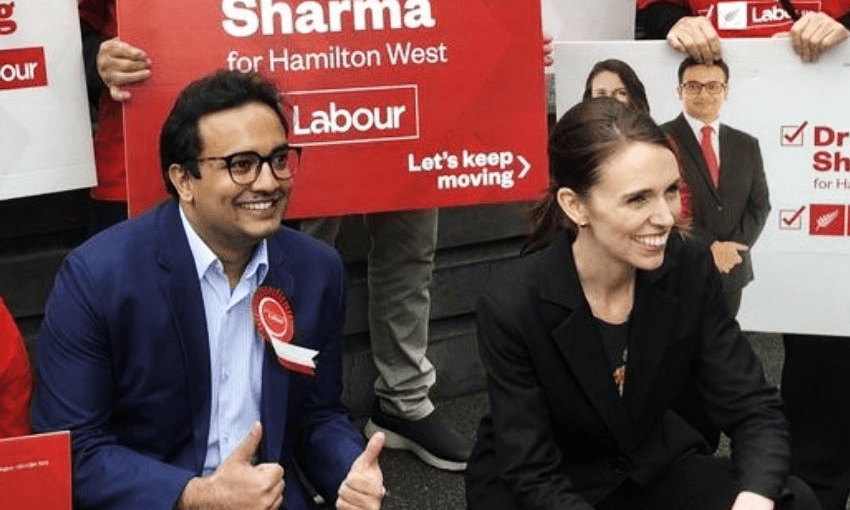A squall of fresh allegations from the suspended Labour MP at once invites an expulsion and an investigation.
For 48 hours, Gaurav Sharma said essentially nothing. Beginning Thursday last week, the MP for Hamilton West fired salvos at his own party, in the form of a frustrated, furious, enigmatic op-ed and across several social media posts alleging a pattern of bullying. Late on Tuesday afternoon, Jacinda Ardern told a press conference he had been suspended from the caucus by unanimous vote, for repeated breaches of trust. Not expelled. Suspended. The entreaty, in effect, was this: take a breath, hold your fire, and there may be a way back before Christmas.
The calm that followed was a false one, and the storm broke at 6pm last night. In a 36-minute-long interview with Newshub political editor Jenna Lynch, Sharma doubled, tripled, everythinged down. He accused former Labour whip Kieran McAnulty, albeit without compelling evidence, of “bullying a lot of people”. He accused the prime minister of complicity, of hypocrisy. And he went further, accusing his bosses of schooling MPs in how to dodge the Official Information Act – of preaching transparency while doing the very opposite.
As for the process he’d faced in caucus, it was “a kangaroo court in a banana republic”, he said, in reference to the non-caucus-meeting meeting-of-the-caucus on the eve of the official gathering at which he was disciplined – a meeting which he skipped, he told Newshub, ridiculously, because of other commitments.
To support his claims, he had secretly recorded a conversation with another MP, in which his colleague, by his account, confirmed he was the victim of a stitch-up. “People are scared, people are fearful,” he claimed of his colleagues.
“This latest example of releasing and misrepresenting conversations with his colleagues reinforces that decision [to suspend],” said a spokesperson for the prime minister in response. “We anticipated Gaurav would continue to re-litigate matters in this way. He has still not responded to our communications about entering into mediation, instead using the media to make his points.” The caucus would meet on Tuesday “to consider a motion to expel Gaurav Sharma from the caucus.”
That expulsion seems as inevitable as it is inconceivable caucus and the leadership do nothing till next Tuesday.
At this week’s press conference, Ardern said the facts of the case weren’t in dispute, and it was accordingly more a matter for mediation than investigation. In the National Party, a QC might have been called in to investigate the veracity of claims made about rookie National MP Sam Uffindell’s past, and whether he’d been straight up about it with his leader, but this was different, went the argument: it was a matter of interpretation, of definition, not about whether the events complained about by both Sharma’s staff and by Sharma himself took place.
That position is today hard to sustain. Lynch read aloud to Sharma the Worksafe definition for bullying and he said: yes, that happened. He said the prime minister was complicit. He made very serious, defamatory claims about McAnulty and others. He said, “the highest office in the country has refused for many, many months to listen to genuine concerns.”
In response to the slender olive branch held out to him earlier this week, Sharma struck a match.
It leaves the prime minister with little choice but to give the MP both his wishes: to expel him and to investigate what took place across the last year and a half. The New Zealand Council, Labour’s governing body, may have a role to play in the first part. But not the second.
There is no smoking gun. There is no damning catalogue of evidence. But claims from a member of your own parliamentary party of a cover-up and hypocrisy, of colleagues too terrified to share their concerns, together with grave impeachments of the character of the former whip and the prime minister herself – they can’t be blown off as sour grapes, desperation or bullshit. If not extinguished, they will linger. If you want to clear the air, there’s a big space between dismissed and disproven. QCs, keep your phones on. It’s already long past the point of mediation.





